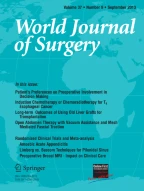Abstract. Cytokines play a central role in the modulation of the intestinal immune system. They are produced by lymphocytes (especially T cells of the Th1 and Th2 phenotypes), monocytes, intestinal macrophages, granulocytes, epithelial cells, endothelial cells, and fibroblasts. They have proinflammatory functions [interleukin-1 (IL-1), tumor necrosis factor (TNF), IL-6, IL-8, IL-12] or antiinflammatory functions [interleukin-1 receptor antagonist (IL-1ra), IL-4, IL-10, IL-11, transforming growth factor β (TGFβ)]. Mucosal and systemic concentrations of many pro- and antiinflammatory cytokines are elevated in inflammatory bowel disease (IBD). An imbalance between proinflammatory and antiinflammatory cytokines was found for the IL-1/IL-1ra ratio in the inflamed mucosa of patients with Crohn’s disease, ulcerative colitis, diverticulitis, and infectious colitis. Furthermore, the inhibition of proinflammatory cytokines and the supplementations with antiinflammatory cytokines reduced inflammation in animal models, such as the dextran sulfate colitis (DSS) model, the trinitrobenzene sulfonic acid (TNBS) model, or the genetically engineered model of IL-10 knockout mice. Based on these findings a rationale for cytokine treatment was defined. The first clinical trials using neutralizing monoclonal antibodies against TNFα (cA2) or the antiinflammatory cytokine IL-10 have shown promising results. However, many questions must be answered before cytokines can be considered standard therapy for IBD.
Similar content being viewed by others
Author information
Authors and Affiliations
Rights and permissions
About this article
Cite this article
Rogler, G., Andus, T. Cytokines in Inflammatory Bowel Disease. World J. Surg. 22, 382–389 (1998). https://doi.org/10.1007/s002689900401
Issue Date:
DOI: https://doi.org/10.1007/s002689900401
